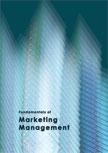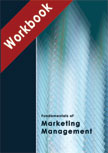Coca-Cola's Belgian Crisis - The Public Relations Fiasco
|
|
ICMR HOME | Case Studies Collection
Case Details:
Case Code : MKTG097
Case Length : 12 Pages
Period : 1999
Organization : Coca Cola
Pub Date : 2004
Teaching Note :Not Available
Countries : Belgium, Europe
Industry : Beverages - Carbonated Soft Drinks
To download Coca-Cola's Belgian Crisis - The Public Relations Fiasco case study
(Case Code: MKTG097) click on the button below, and select the case from the list of available cases:

Price:
For delivery
in electronic format: Rs. 300 (Approx 6.6 $/3.4 £ /5.1
€);
For delivery through courier (within India) : Rs. 125
» Marketing Case Studies
» Marketing Management Short Case Studies
» View Detailed Pricing Info
» How To Order This Case
» Business Case Studies

Please note:
This case study was compiled from published sources, and is intended to be used as a basis for class discussion. It is not intended to illustrate either effective or ineffective handling of a management situation. Nor is it a primary information source.
Chat with us

Please leave your feedback

|
|




<< Previous
Excerpts
The Fiasco
|
The Belgian crisis broke out on June 08, 1999. Thirty-three children aged
between 11 and 13 of St. Mary School in Bornem, Brussels, complained of
headaches, discomfort, dizziness and nausea. A few vomited and were sent home.
The school management then made efforts to find out why so many students had
fallen ill. The enquiry revealed that students had drunk Coke shortly before
they began complaining of their illness. The Coke had arrived at the school
packed in cases of 20-centiliter glass bottles that were shipped from
Coca-Cola's bottling plant in Antwerp.
The same day, the plant's management was called and briefed about the children
falling ill after drinking Coke...
|

|
The Explanation
With things not going their way, Coca-Cola's executives came forward with an
explanation of what had gone wrong. They claimed that their experts had
investigated the problem by testing the suspect batches for chemicals and
the tests showed nothing toxic in the beverages. Explaining the reasons for
the crisis, Philippe Lenfant (Lenfant), General Manager, Coca-Cola, Belgium,
said that there had been separate errors at two plants. The products from
Antwerp had developed an odd, sulphuric smell and unpleasant taste because
of sub-standard carbon-dioxide used to carbonate the products...
|
|
The Aftermath
Coca-Cola's financial performance suffered a major setback due to the
Belgian crisis. The recall had a negative impact on Coca-Cola's overall
second-quarter net income in the fiscal year 1999, coming down by 21% to
$942 million. Moreover, the entire operation of removing and destroying
recalled products cost Coca-Cola Enterprises $103 million (£66 million).
The recall led to a 5% decline in the bottler's revenues and a fall in
cash operating profit by 6%. Coca-Cola's brand image was hit among
Belgian consumers; a market that had been one of Europe's most
successful for the company... |
Exhibits
Exhibit I: The Coca-Cola Promise
Exhibit II: Coca-Cola's Quality Statement
Exhibit III: The Coca-Cola Safety Policy
Exhibit IV: Coca-Cola - History of Purity
|
|










